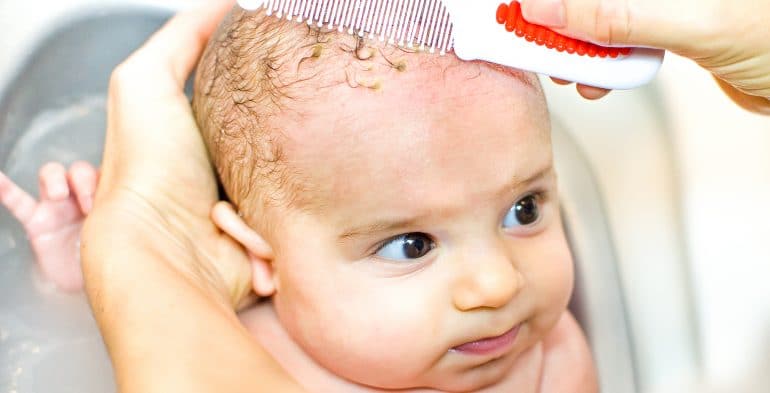
What is cradle cap in newborns?
Cradle Cap is the yellow, greasy scaly patches that can appear on the scalp of young babies, usually within the first two months and clears up without treatment.
Cradle cap is very common and is harmless as long as it does not become infected. Cradle cap can be unsightly but do not be tempted to pick at the scales as this can cause infection. Cradle cap is not caused by poor hygiene or allergies and it is not contagious.
What causes cradle cap?
It is not clear what causes cradle cap but it is thought that:
Cradle cap is a type of seborrheic dermatitis a kind of irritation which affects the oily skin of children and adults.
It can be a reaction to a yeast called malassezia found on the skin.
High levels of sebum (an oily substance) on the skin.
What does cradle cap look like?
Cradle cap is easily recognized by the yellow or brown scales on your baby’s scalp. The scales may flake and sometimes some hair may come out with the flaking but it will grow back. It can look sore where the scales have come away. Cradle cap usually affects the scalp but can appear on the face, neck, ears, armpits, nappy area and behind the knees.
Treatment for cradle cap
Most cases of cradle cap will clear up on their own within a few weeks or months and without any treatment.
You can reduce the build-up of scales on the scalp by regular washing with a gentle baby shampoo followed by gentle brushing of the scalp to loosen the scales.
It can be helpful to soften the scales with baby oil or a vegetable or olive oil first before gently brushing and then washing the oil out with baby shampoo. You can leave the oil on overnight and then gently wash in the morning to help loosen the scales.
If your baby’s cradle cap is stubborn and does not respond to these methods consult your pharmacist who will be able to help. For uncomplicated cradle cap there is usually no need to see a doctor, but if you notice any soreness, infection or swelling on the scalp then you will need to take a doctor’s advice who may prescribe a mild anti-fungal cream.
When to consult your doctor for cradle cap
Consult your doctor or pediatrician if you baby’s cradle cap
- Swells
- Bleeds
- Itches
- Spreads to the face or other areas of the body







